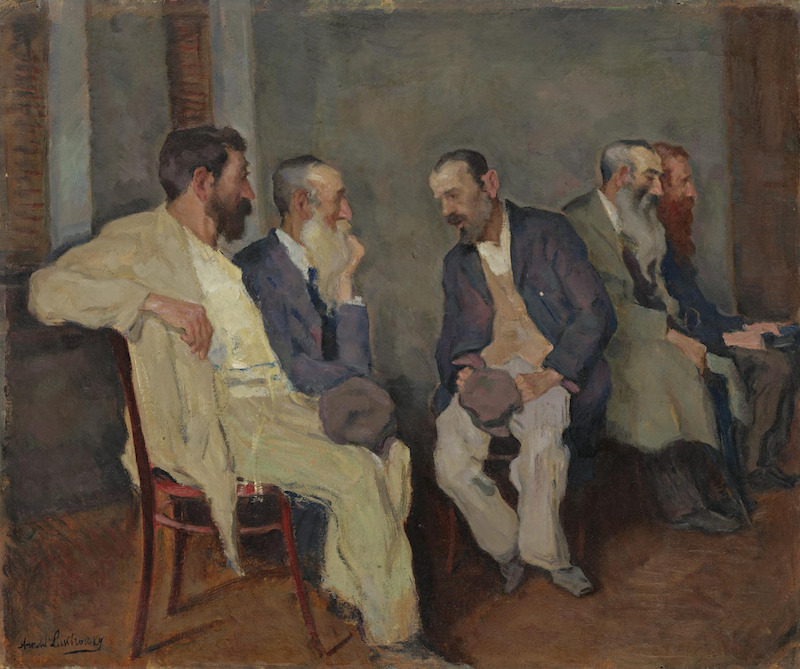3 Tips on How to Have a Good Conversation
Conversation, like any human endeavor, can be done well or poorly. Here are some ways to converse well.
Sep 24, 2022
Some of us are communicating all day long. Texts, tweets, other social media postings, and emails are all forms of communication, after all. But are they forms of conversation? If done well, they can come close.
But nothing beats a face-to-face conversation. In person.
So, what exactly makes for a good conversation? You know when you've had fun, felt heard and appreciated, and enjoyed your partner's observations and demeanor. And you also know when a conversation didn't leave you feeling rewarded.
How can we have more conversations that feel great?

We all have habits that work for us some of the time — but not all the time, or as well as we'd like. Your habit may be to stay quiet; you may be a great listener but not generous with self-revelation.
Here are some tips on how to have better conversations, one-on-one, gleaned from psychology research and my own experience as a passionate student of good conversation.
Be Interested
Some conversations feel like dueling monologues: Each side takes the floor, with not much interaction in between. If you're the kind of person who can talk all day and all you remember is what you said, you're missing the chance to learn from the human being in front of you.
This sometimes happens when you've been alone too much. Slow down. Breathe. Make eye contact.
The general rule is to alternate statements of fact, opinions, or anecdotes that focus on you, with questions or responses that put the focus on your partner.
Be real. Ask questions that genuinely interest you. Some people worry that questions are rude: Trust that your partner will appreciate your interest and can find a way to answer your question that isn't uncomfortable. In the process you'll find an overlapping area that might expand on its own.

A simple way is to appeal to people's expertise. Example: You've met a real estate agent at a party. You're bored silly with conversations about real estate, but you are interested in intuition. You might ask "Can you usually tell which apartment your client will buy?" and follow up with "Any big surprises?"
It may sound counterintuitive, but the less you have in common with someone, the more personal you can be. That's because the big human questions apply to everyone.
Alternate Open-Ended Statements and Specific Questions
A good conversation, like a good piece of writing, has what editors call "resonance." That means it changes pitch from the airy and abstract to the granular and specific. The contrast is interesting, engaging, and refreshing.
A general question can get the ball rolling. Asking "How are you?" is polite, but if the answer is a simple "fine," that's your cue to add some details. "This day got off to a terrific start for me because..."
When it's time for you to ask another question, make it specific. Later you can ask an open-ended question, which gives the other person a chance to choose a topic to talk about.
Match Mood and Energy
When you're walking, it's good manners to match your partner's pace. You wouldn't rush alongside a senior who uses a walker or cane. In the same way, match your partner's social energy.
We usually know when other people are tired, anxious, distracted, or shy, even if they are trying. Don't overwhelm them with your ebullience. Tone it down. Give them room. Allow silence.

Perhaps your conversation partner is much more socially confident than you are and is happily chattering away. It's easy to become resentful. But you can also let other people's social energy rev you up — there's some evidence that quiet, reserved people feel better when they act more like extroverts. Insert yourself when you can and tell a story of your own.
It may feel awkward, but good conversationalists will help you. They'll catch that you're matching them, appreciate the effort, and start asking questions. You've joined the party — if they need to take up all the space, that's their failure, not yours. But if you don't try, it's partly your choice as well.
Don't be afraid to acknowledge emotion, a key form of matching. If you've heard a sad story, it's good conversation manners to say, "I'm sorry that happened to you" or "That's rough." If someone is sharing good news, you celebrate, too. It's almost never a bad idea to say "Go, girl!"
Be Complimentary
Everyone likes a sincere compliment. You might worry that you'll sound phony, as if you're "buttering them up." It's far more likely they'll be pleased. If your observations are precise and accurate, they'll be remembered forever.
Above all, take it as an article of faith that everyone craves a real conversation. As Maya Angelou famously said, "I've learned that people will forget what you said, people will forget what you did, but people will never forget how you made them feel."







